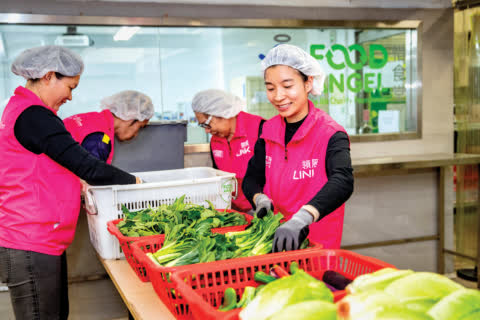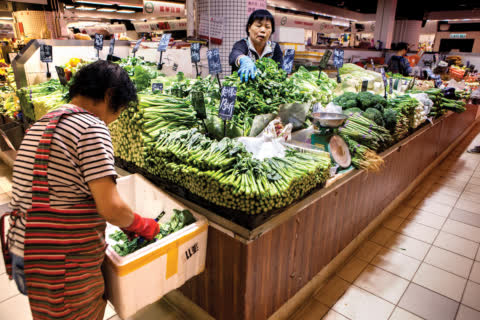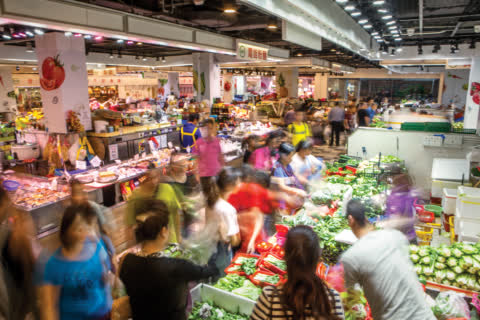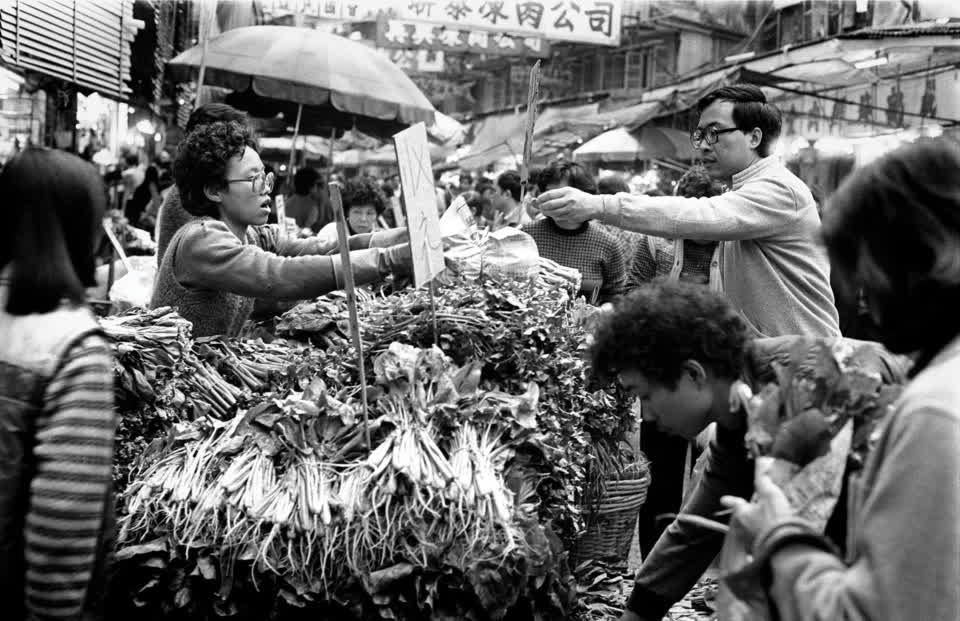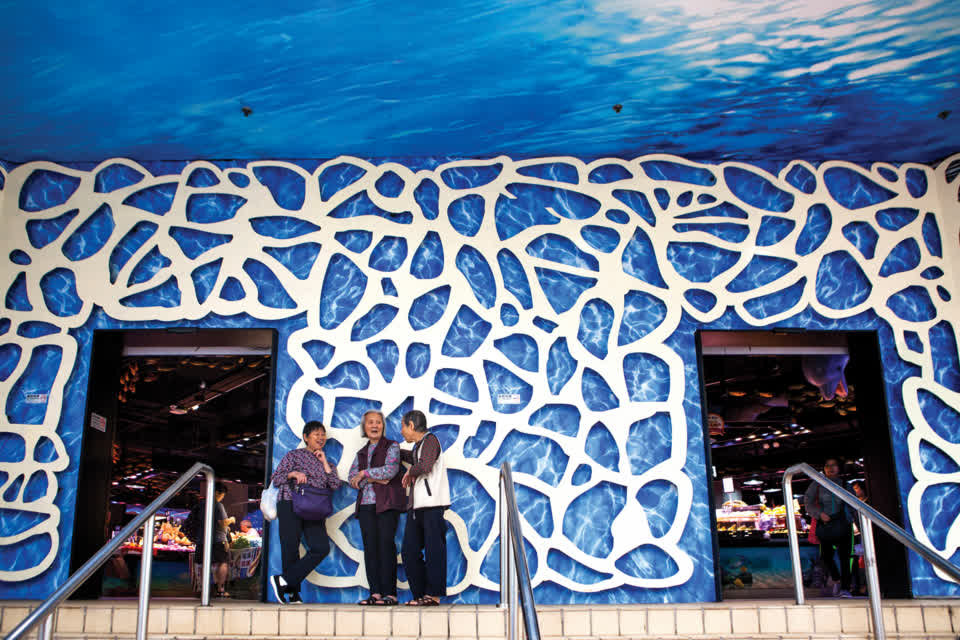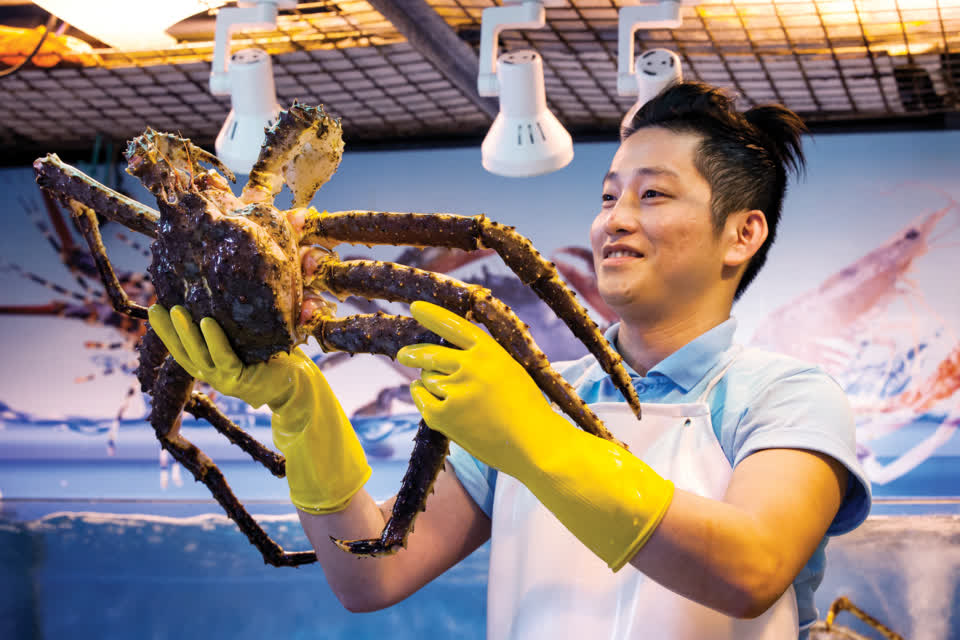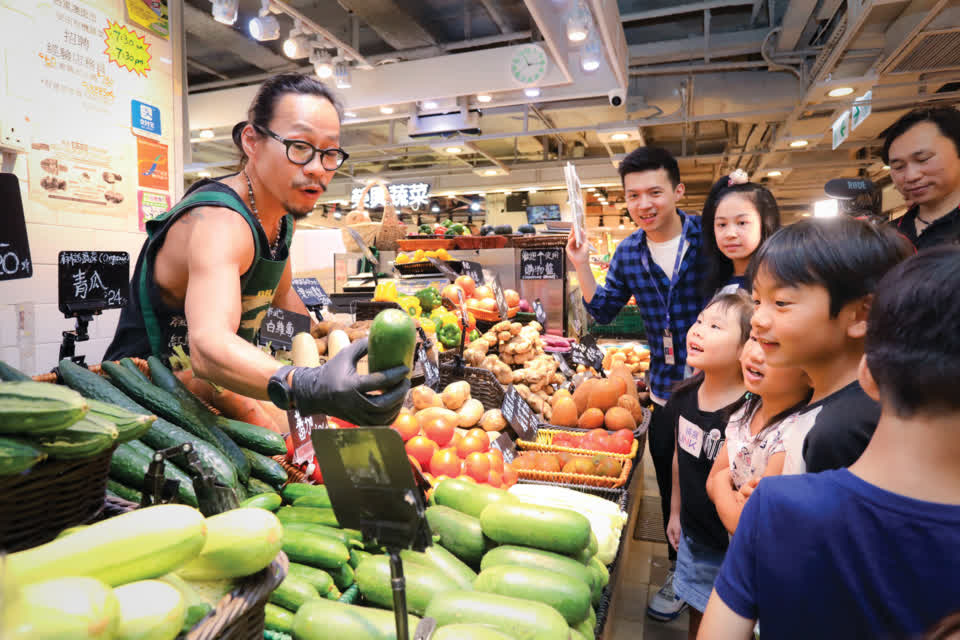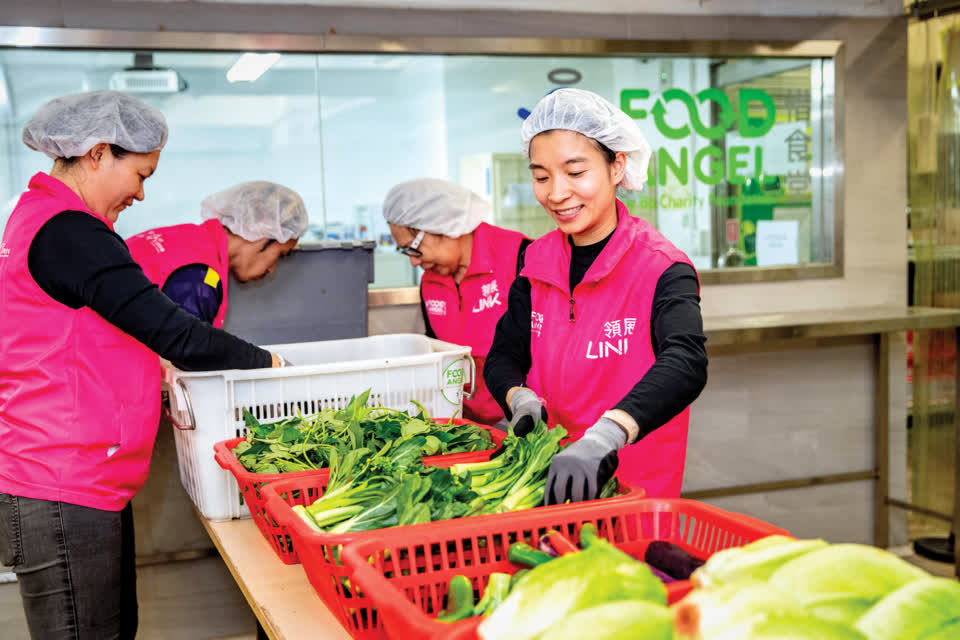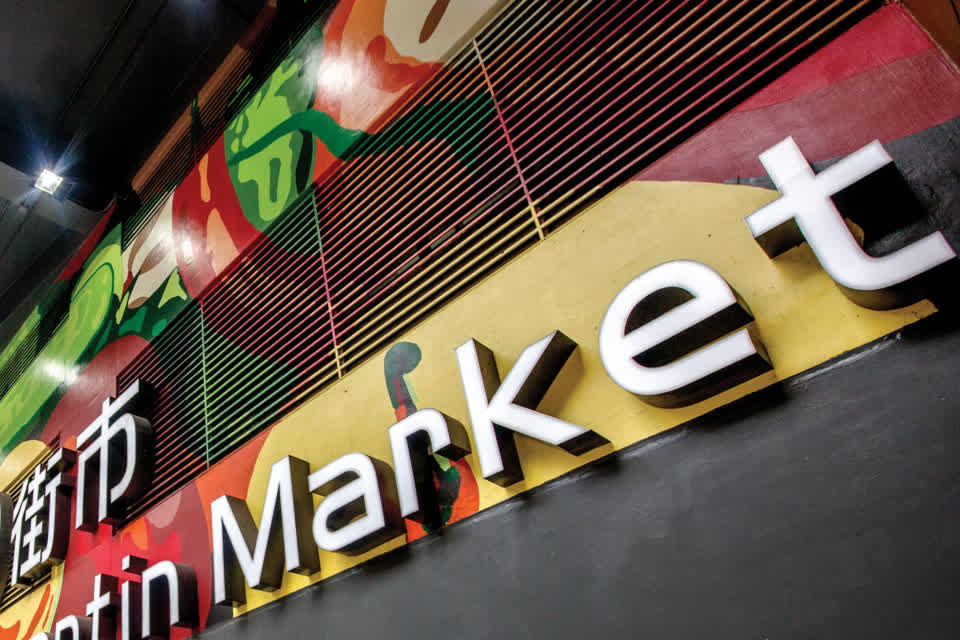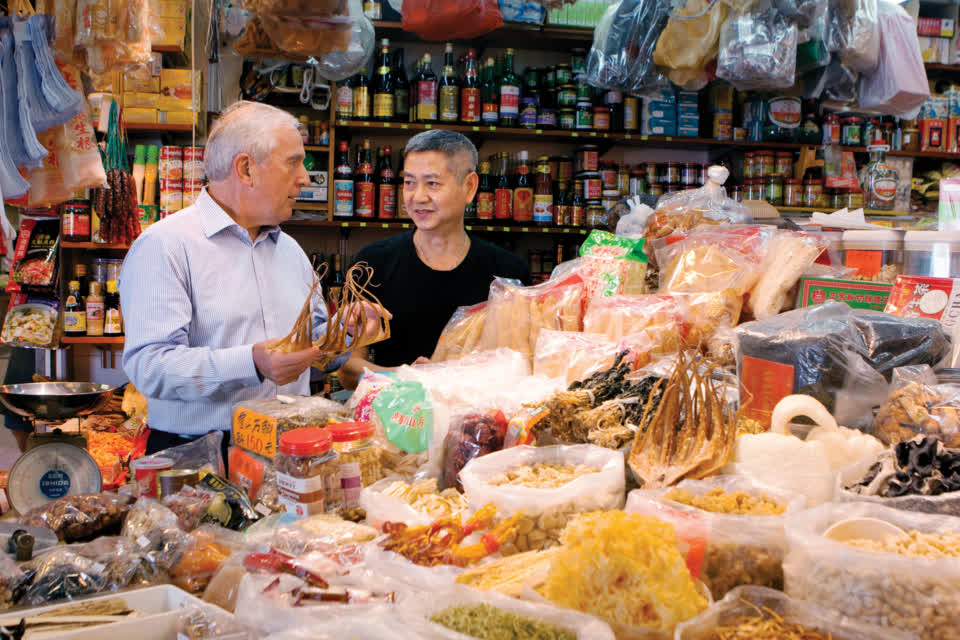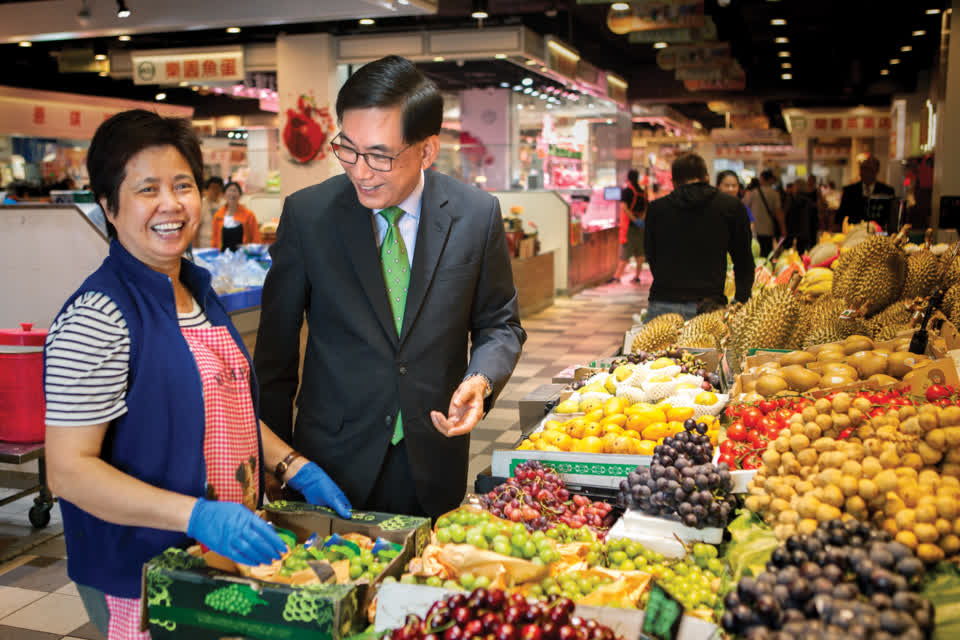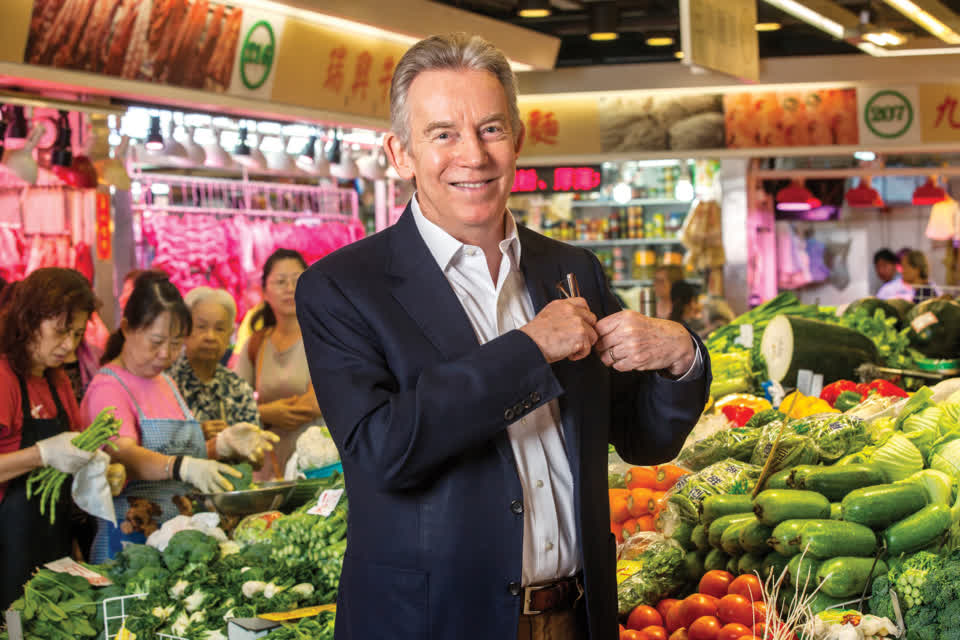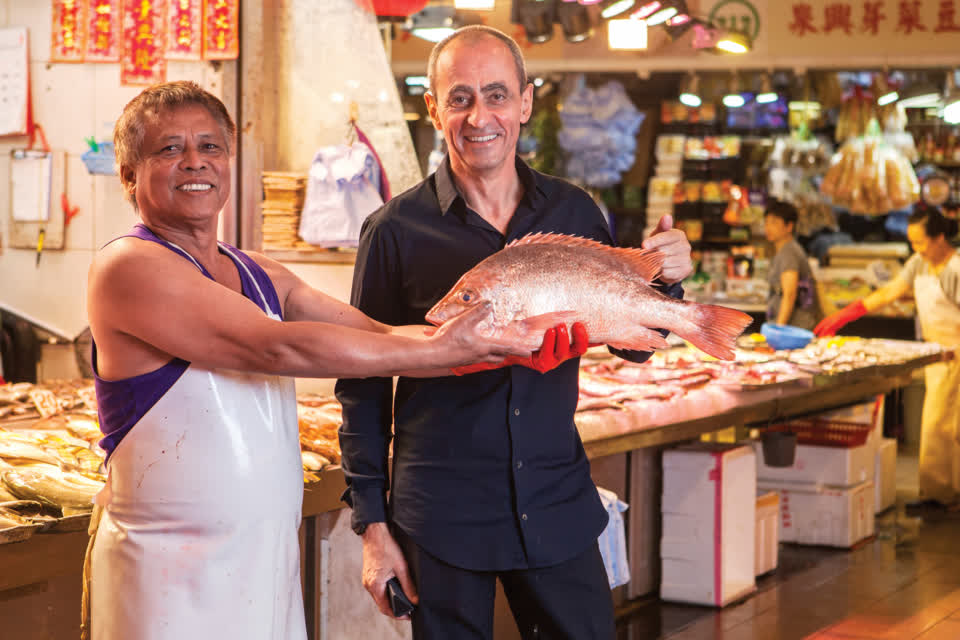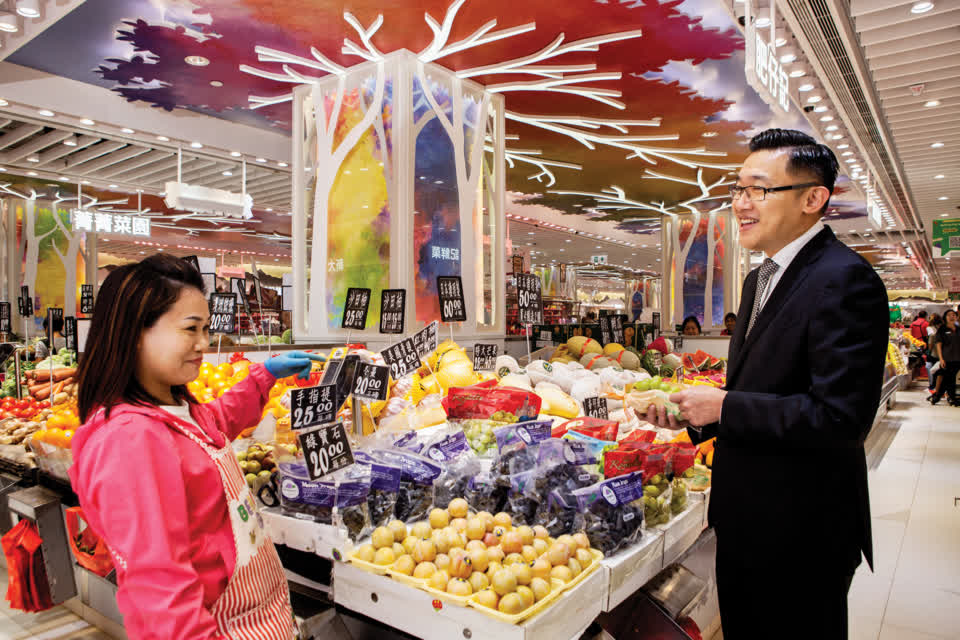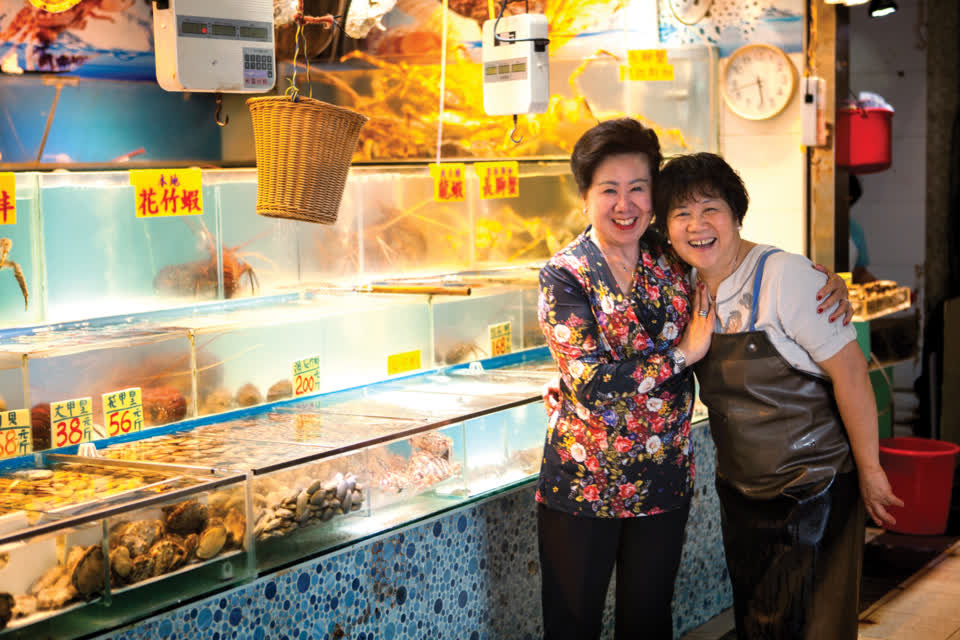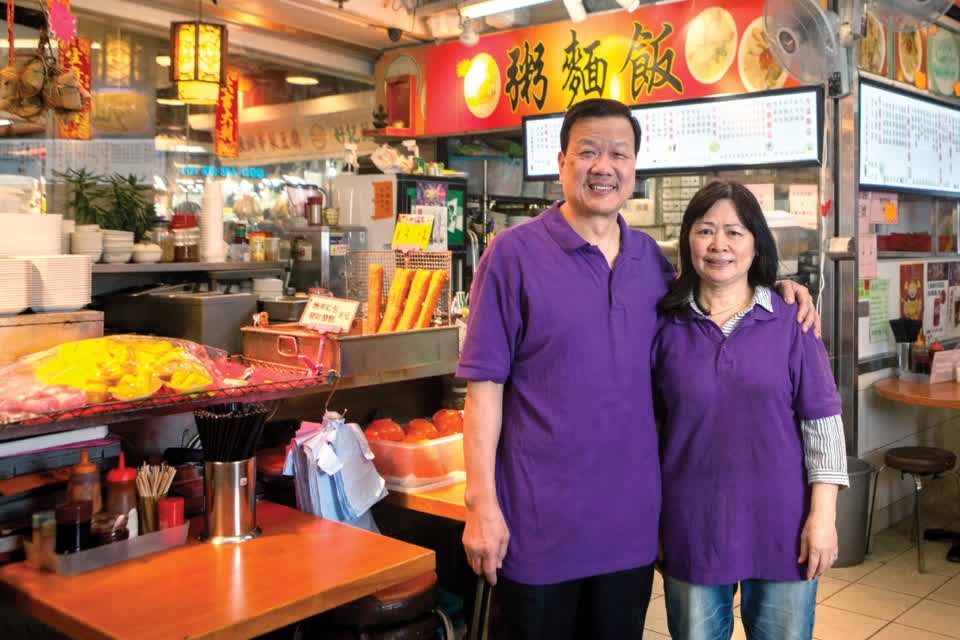In the morning, Food Angel’s Sham Shui Po location is bustling. A large walk-in fridge contains washed and chopped greens. In the adjacent kitchen, dozens of staff and volunteers are preparing vegetable and mushroom dishes for the day’s first mealtime. Enormous ovens can steam vast quantities of rice. Hygiene is strict, and one chef is in charge of quality control.
Upstairs, a community centre can seat around 150 beneficiaries for lunch, but not everyone comes to the building to eat. About 5,000 meals will be taken out to different service points around the city and served by partner NGOs.
“After we prepare the meals in the kitchen, we will put them into boxes, and then we have another logistics team who take the meals out to our different service charity partners,” says Hannah Chan. “We offer food packs too, for dry food. Some beneficiaries from low-income families don’t always want to go to the community centre to have fresh food, so we have another choice for them.”
A busy working kitchen is the ideal opportunity to explain food security issues to the younger generation. Students from kindergarten age to secondary school will come for a two-hour tour of the premises.
“We have an education centre where we teach them that many people don’t have enough food, while on the other hand, some of these children may be wasting a lot of it. We have seen a lot of kids who didn’t know about these issues at all. We are just teaching our next generation to cherish food.
“We are actually helping them with their lives. They look more happy, more healthy”
“I find this work very meaningful. On the one hand, you source all the recycled food, prepare and cook it, and get to witness the result when you serve it to the beneficiaries. We can see we are actually helping them with their lives. They look more happy, more healthy. It inspires me to keep working here. I feel proud.”
In its second year of operation, the Food Angel programme created HK$3.2 worth of socio-environmental value to the community for every HK$1 invested.
“Apart from producing meals, I think educating the community about the need to cherish food, and care for the community is equally important,” says Lee. “With the support of Link, we have been able to do food recycling and production work as well as food education programmes.”
RENEWABLE ENERGY
In addition to Food Angel, four other NGOs are collecting surplus food from stallholders at Link markets to help people in need.
However, Hongchoy explains that recycling is not the only way Link makes productive use of surplus food.
“About 2.5 tonnes of food waste are collected every day from 19 of our fresh markets and delivered to O-PARK1,” he says.
O-PARK1 is the Hong Kong Government’s Organic Resources Recovery Centre on Lantau Island – the first such facility in Hong Kong. Here, anaerobic digestion technology is used to convert food waste into biogas, a source of renewable energy, for electricity generation. The leftovers from the process can be turned into compost for landscaping and agricultural use, thereby returning food waste to the soil and completing the cycle.
The corresponding decrease in the use of fossil fuels for electricity generation, together with the reduced amount of food waste in landfills, should prevent the emission of some 25,000 tonnes of greenhouse gases each year. To enable the smooth running of this initiative, Link gave training on food waste separation to its tenants and frontline staff.
SOCIAL VALUE
Nicholas Sallnow-Smith, who was Chairman of Link when the fresh markets revitalisation scheme was first conceived, discusses the relationship between a business and the wider community it serves.
“If you run a good business, you are benefiting the community,”
he says. “In fact, the only way in which you know you’re benefiting the community is if you make a profit. When you do anything commercially, you are consuming resources: human beings, buildings, electricity and everything else. If what you can sell the resulting service for is less than it cost you to do that, you are destroying resources. You should not be doing it. You should be allowing other people to use that human capital and physical capital to do something else. The idea that making a loss is good for the community is absurd. So your first corporate social responsibility is to make a profit.
“The social benefit of the markets was based on creating the value, because if you think about it, if the markets are successful, it means people are shopping in them. It means the tenants in those markets are making sales. The retailers are making more money than they did because more people are coming to the shopping centre. That’s all social value. I think Link has been a pioneer in corporate social responsibility in explaining what it’s really about.”
